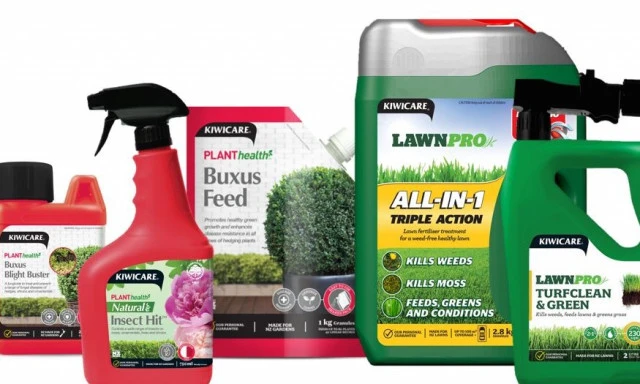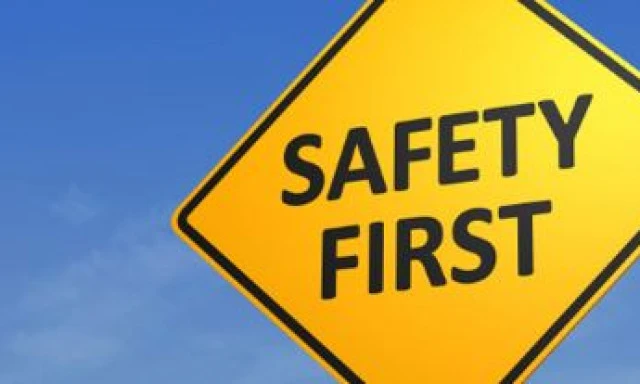Garden Safety
Is Digging Dangerous? Is Raking Risky? Are Tomatoes Trouble? Are Plants Perilous? Stay Safe in Your Garden and Gardening is Good For You.
One does not think of the garden as being a particularly dangerous place, and most of the time it isn’t. The activity of gardening is a very popular and beneficial leisure activity. But there are some dangers that gardeners should be aware of so that they, and those visiting the garden, can stay safe.
Working with Tools
- Power tools
- Chainsaws, lawnmowers, hedge trimmers and other power tools should be used with care. The fast-moving sharp blades can very quickly do considerable damage to people, pets, plants and structures.
- Read the manufacturer's instructions and safety advice before use.
- Turn off lawnmowers before removing clipping catcher or clearing the clipping chute.
- Turn off chainsaws and clippers when not in use.
- Ensure electric equipment is fitted with a circuit breaker.
- Sharp tools
- Saws, secateurs, forks, spades, knives and other tools with sharp edges or points should be used with care. Cuts can become infected during gardening.
- Use tools with retractable blades or blade covers.
- Wear good strong gardening gloves that give you feel and protection from sharp objects; tools and thorns.
- Other sharps in the garden
- Watch out for eye injury from stakes/canes.
- Put some colourful tape on the end of canes so they can be seen or add something padded to stop the risk to eyes.
- Take care around plants with sharp-pointed leaves such as yucca. These too can pose a risk to eyes when bending over near them.
Working at Height
- Ladder work
- Falls from ladders and trestles when trimming hedges and trees, clearing gutters and cleaning windows are amongst the most common causes of serious injury in the garden.
- Ensure all ladders and trestles are on firm, level surfaces and secured in place.
- When climbing ladders always keep three points of contact with the ladder.
- Move the ladder so that you never over-reach to the side.
Water
- Ponds, pools, rivers, wells and other water can be a hazard for young children and animals.
- Ensure fencing meets NZ Standards and regulations.
- Ensure there is an escape route for any children or animals that might fall in the water.
Infectious Diseases
- Legionnaires disease
- Legionella is a bacterium that is present in soils and water droplets. Legionella can cause serious lung disease in older people or people with certain risk factors, e.g. smokers, sufferers of chronic lung disease or respiratory issues and people with a weakened immune system.
- Symptoms include – coughing, shortness of breath, aching muscles, headache and fever.
- Read warnings on bags of soil/compost (media).
- Keep stored bags of media out of direct sunlight.
- Use a mask when opening or using bagged media.
- Open bags in the open and away from the face so that any dust is not inhaled.
- Dampen dry soil in bags to prevent dust.
- Wear gloves when handling any soil.
- Wash hands after handling the soil and before eating or drinking.
- Work with soils in well-ventilated places.
- Weil’s disease
- Weil’s disease is a form of leptospirosis; a bacterial infection often contracted from the urine of infected rodents (and other animals) via cuts or mucous membranes.
- Symptoms are similar to those of flu but can become very severe if the Leptospira bacteria infect organs or the brain.
- When working in the garden where rodents may have travelled wear gloves and clean and cover any cuts or abrasions.
- Tetanus
- Tetanus (lockjaw) is a bacterial infection which enters through cuts, grazes and puncture wounds during gardening.
- Symptoms include stiff muscles including jaw muscles, fever and nerve irritation.
- Immediately clean any cuts or abrasions obtained while gardening.
- Tetanus vaccination is usually given to children and is boosted for people over 45; make sure yours is up to date.
- Lyme disease
- Lyme disease is a bacterial infection transmitted through the bite of a tick.
- Symptoms include an expanding red area of skin with the tick bite site in the centre. The red area can be a ring-like ‘bulls-eye’. Fatigue, chills, headache, low-grade fever, muscle and joint pain, may occur.
- Use insect repellents in areas where ticks may be present.
- Remove a discovered tick promptly to reduce the risk of Lyme disease transmission.
- Food Poisoning
- There is some risk of contracting food poisoning from eating unwashed fruit and vegetables from the garden.
- Wash fruit and vegetables thoroughly before eating them.
- Take care to only use compost that has completed the composting process. Don’t use raw manure as fertiliser.
Stings and Bites
- Stings
- Wasps and bees can give painful stings.
- Wasp and bee stings are occasionally serious to people sensitive to the sting.
- If a nest is disturbed it may result in multiple stings which will have serious consequences for most people.
- Take care around known nest sites and when walking through scrub areas that might conceal nests.
- Bites
- White-tailed spiders, fleas, ticks and mosquitoes can all bite and cause painful or itchy bites.
- Bite sites can become infected if scratched.
- Clean all bite sites as soon as possible and use a cold compress and/or anti-histamine cream to reduce swelling and itch.
Poisonous Plants
- Berries, leaves and sap of some garden plants are poisonous.
- See this article on the Poisonous Plants of New Zealand.
Working with Chemicals
- Many garden chemicals are hazardous substances. However, they will have been approved as safe by the Environmental Protection Authority for use as directed on the label.
- Hazardous garden chemicals include petrol, pesticides, cleaning and pool chemicals and fertilisers.
- Read the label and follow the instructions. See this article and video on mixing and diluting spray concentrates.
- When spraying or spreading garden chemicals avoid spray or powder drift onto people, pets or locations not being treated.
- Wear appropriate personal protective equipment; clothing, gloves, mask, eye protection and hat.
Work Strain
- Some aspects of gardening can be hard physical work which can cause muscle strains, backache, scratches, scrapes and other physical harm.
- Get help to lift heavy objects.
- Heatstroke and sunburn are risks to be taken seriously in New Zealand summers.
- Drink plenty of water when working on hot days.
- Take regular rests in the shade.
- Use high factor sunscreen on sunny days.
- Watch out for slip and trip hazards. When wet, paths and lawns can be slippery. Tools, toys, cables and other items can be trip hazards; take care particularly when carrying items.
Children and Pets
- Keep children and pets away from sharp tools, chemicals, unguarded water, etc.
- Keep children and pets away when working with power tools and using chemicals.
See also Garden Safety FAQs
So there are some hazards in the garden. Now you know about them and how to reduce the risk, you, your family, pets and visitors will be able to enjoy the garden in safety. On balance, gardening is hugely good for you. So keep it up and keep safe.
David Brittain
Kiwicare


